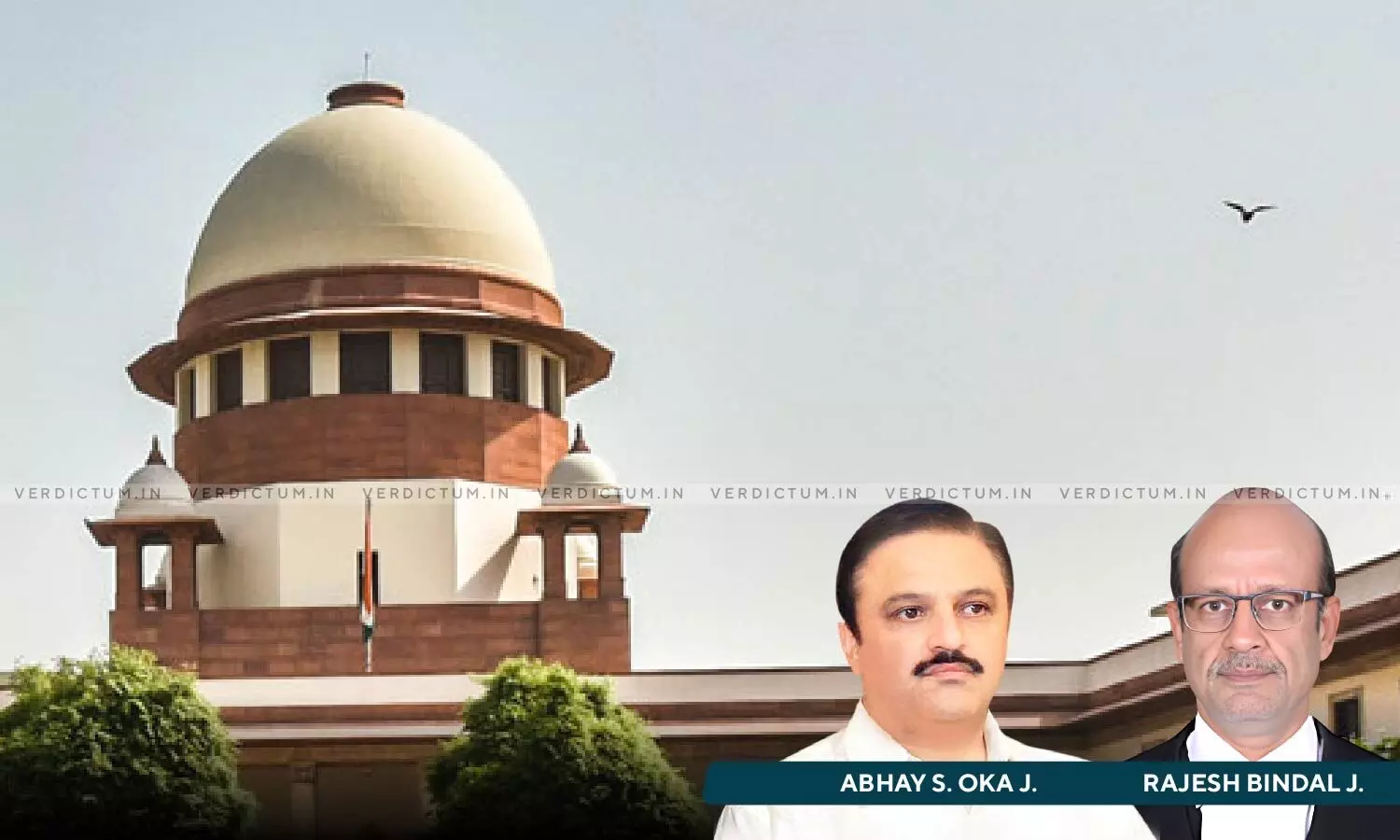
Immaterial Inconsistencies In Statements Of Eye Witnesses Due To Time Lag Is No Reason To Grant Acquittal In Case Of Death Caused By Negligence: SC
 |
|Finding that minor contradictions or variations in statements of eyewitnesses are normal since the incident of death occurred more than four years ago, the Supreme Court held that the Trial Court has erred in basing the acquittal of the accused on these immaterial inconsistencies when factum of a dispute between the parties was even admitted by the accused in their statement recorded under section 313 CrPC.
Therefore, while noticing that the depositions made by the eyewitnesses do not suffer from any major contradictions, a Two Judge Bench of Justice Abhay S. Oka and Justice Rajesh Bindal observed that one-liner statement of the doctor in his cross-examination who examined the deceased, that the injuries suffered by the deceased could be caused by a fall on a hard surface, may not be of any help to demolish the case of the prosecution which finds corroboration with the eye witnesses’ account.
Advocate Himinder Lal appeared for the Appellant, whereas, Advocate Abhinav Mukerji appeared for the Respondent.
Going by the background of the case, in the year 1992, the complainant (a member of Gram Panchayat, Karar) accompanied by the Pradhan of the said Gram Panchayat lodged a daily diary report with the police and narrated an incident of verbal altercation between the Appellant and the deceased, which later resulted in death of the deceased. The Trial Court after examining the witnesses, acquitted the accused. However, the High Court reversed the judgment of Trial Court in an appeal by the State and convicted the Appellant under Section 304 Part II, IPC. Hence, present appeal.
After considering the evidence, the Apex Court found that the Trial Court has acquitted the accused simply on the basis of variance between the two versions of the first prosecution witness wherein on one occasion he said that the blow was inflicted by the accused, whereas in his supplementary statement recorded under Section 161 CrPC, he corrected his previous statement saying that the appellant was the one who had inflicted the blow and not the accused.
While observing that the prosecution witness has corrected his statement at the first available opportunity on the same day, the Apex Court highlighted that the Trial Court has erroneously concluded that the variance between the two versions goes to the very root of the case.
Furthermore, noticing that the Appellant and accused are real brothers, the Bench elucidated that there could be no occasion for the complainant to have changed his version in order to absolve one of the brothers and implicate the other brother, being the author of the fatal head injury suffered by the deceased.
Finding that place of occurrence and the time are fully corroborated by the prosecution witness and no dent could be pointed out from his cross-examination, the Bench said that the High Court has rightly concluded that the variance appears to be on account of an inadvertent mistake.
Therefore, the Apex Court dismissed the appeal after holding that no error has been committed by the High Court in reversing the judgment of acquittal passed by the Trial Court.
Cause Title: Gian Chand v. State of Himachal Pradesh
Click here to read/download Judgment